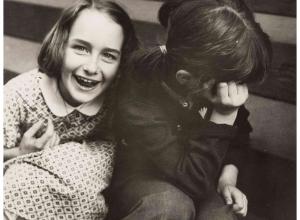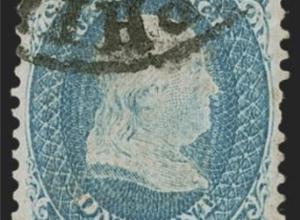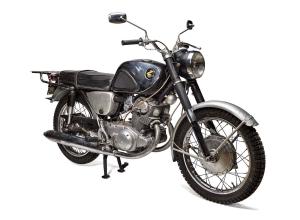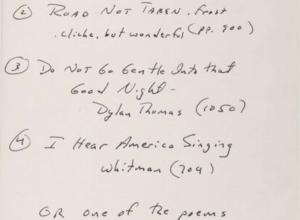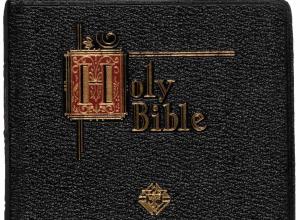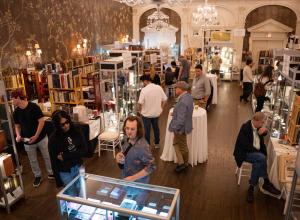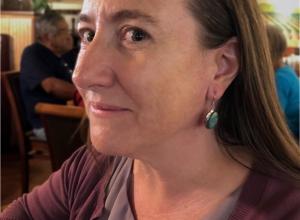Bright Young Librarians: Kate Wells
Our Bright Young Librarians series continues today with Kate Wells, Rhode Island Collection Librarian within the Special Collections Department at the Providence Public Library.
 What is your role at your institution?
What is your role at your institution?
I am the Rhode Island Collection Librarian within the Special Collections Department at the Providence Public Library. PPL has collected materials about the history of Rhode Island and City of Providence since it's inception in 1874. These materials have been known as the "Rhode Island Collection" since 1901 as part of the non-circulating reference collection, but were only designated as a special collection in 2012. The careful work that librarians did for over a century to accumulate these resources has resulted in a collection that now includes unique and rare items as well as very commonplace ones.
I work as a lone arranger in an urban public library. On behalf of the Rhode Island Collection, I coordinate new acquisitions, catalog published items, process archival and visual materials, coordinate digitization projects, supervise volunteers and interns, provide research services, curate exhibitions, and do a lot of outreach within our community including promoting the collection via social media and programming. While I manage the collection on my own, I could never get things done if I didn't collaborate with excellent colleagues both inside the PPL and with other cultural heritage and arts organizations here in Providence. I wear a lot of hats, but I never get bored.
How did you get started in rare books?
I was working in the corporate world and was not particularly happy with the work or with the career path open to me. Maybe I watched Say Anything too many times as a teenager, but I felt like Lloyd Dobler when he says "I don't want to sell anything, buy anything, or process anything as a career. I don't want to sell anything bought or processed, or buy anything sold or processed, or process anything sold, bought, or processed, or repair anything sold, bought, or processed. You know, as a career, I don't want to do that." I wanted a career that I felt good about when I went home at the end of the day.
It took me some time to have the courage to make a full career change, but I quit my job and went to Simmons College full-time for a dual degree with a Masters in History and MLIS with an archives concentration. I must've been totally naive and/or very stupid to make that jump without ever having worked in a library or archive! I was lucky to have my internships at the Houghton Library at Harvard University where I got great work practice with very good archivists and got to work with amazing collections.
Since graduating, I've never had a job where I was able to just process archival collections all day! I've worked in for a municipal city clerk's office saving vital records from dark corners of basements and attics. I've spent time as a cataloging librarian, a reference librarian, and an archivist within university libraries. I've supported the research of thousands of scholars, students, genealogists and enthusiasts. I've written and managed grants, set up digital repositories and major scanning projects, taught classes and workshops. All of that experience has been invaluable to my current position where I do a bit of everything.
Favorite rare book / ephemera that you've handled?
That is an impossible question. That changes each month as it's usually related to whatever I'm working with in the moment. I started our @rhodeislandcollection Instagram account partly so that I could remember the interesting and quirky items that I pull for researchers as part of my daily work.
The PPL Special Collections has some incredibly beautiful rare books and ephemera - items that are beautiful to handle because of their craftsmanship, their exquisite materials, or their provenance. But what I love most are the items that give me a sense of the daily life of regular people. One item that never fails to amaze me is from our Harris Collection on the Civil War and Slavery. A ledger from the gunboat U.S.S. LaFayette, 1859-1863, as it participated in the siege of Vicksburg, Mississippi documents the contraband slaves that they took on board from various plantations as they made their way up the Mississippi River. These lists include the full list of each individual, by name and age, that were freed on board. These mundane, administrative records document this totally amazing moment - when entire families of people were given freedom, but also taken away from the only sense of community that many of them had ever known. It's incredible to imagine that experience and to know that, in many cases, this list may be the first time that these people can be identified in documented history.
What do you personally collect?
The funny thing is that at home I'm actually not very sentimental about my own collections. I do have a small collection of early 20th century children's illustrations and block prints, but mainly I have vintage fabric, buttons and sewing notions that I have collected with the intention to use for various sewing projects. The problem is that I just can't seem to bring myself to cut into vintage fabric and so I just hoard it!
What do you like to do outside of work?
My husband and I just bought our first house so we're currently spending most of our free time on renovation or gardening projects. I also love hiking with our dog, cocktails and meals with friends, scouting for finds in estate sales and antique stores and working on various knitting and sewing projects.
What excites you about rare book librarianship?
I have never been more excited about it than in my current job at PPL. This is my first experience working in a public library and the opportunity to introduce special collections to people who may otherwise feel intimidated to work with rare materials has been incredibly rewarding. Core to our mission is to provide access to any patron who comes in our doors or visits our website. I work with an amazing group of colleagues who are all passionate about making our rare books and archival material relevant to a wide audience. No matter who you are and what your interests, if you walk in our doors we want to get you engaged. We don't want you to just come in and look; we want you to DO something with what you find and tell us all about it.
We've collaborated with high school students, artists, zine writers and musicians, tradespeople and artisans, and community organizers to bring our materials to life in new ways. I always love working with serious scholars, but there's a different energy that comes from working with people who use rare books and archival materials to adapt to their own interests. Seeing a teenager get impassioned for social justice after working with activist materials from the 1970s; working with a professional sign painter to find historic advertising references for a new client; or collaborating with a community organizer to teach young people how to conduct oral history interviews and document their own community - these have been incredibly fun opportunities. As special collections librarians, we have the opportunity to know about these incredible resources and to share them.
Thoughts on the future of special collections / rare book librarianship?
We all get the question - are libraries even relevant anymore? And of course, we are in many, many ways. The uniqueness of special collections is what will ensure its relevance. What will draw visitors to a particular library will continue to be what makes that particular institution unique. That might be the staff's subject expertise, engaging programming or the unique collections of materials that are only available at that particular library. In that sense, I think that special collections may be the area of librarianship with the most stability.
But I think that the future of our work requires that we reach beyond our comfort zones to engage a much larger audience than we traditionally have. We can't expect people to just come to us. We need to make it easier for them to know what we have and they need to be encouraged to use it in ways relevant to their own personal interests. Whenever possible, we need to do more than just put scans up online. We need to engage people to actively do something with them - to reinvent, adapt, and create new products. The more barriers we put up to use, the most we put our collections and own relevance at risk.
Any unusual or interesting collection at your library you'd like to draw our attention to?
We recently got the first delivery installment of a new acquisition that I am really excited about. The Lou Costa Collection documents the Cape Verdean community in the Fox Point neighborhood of Providence in the 20th century. This community has been completely dispersed by a combination of urban development and gentrification since the 1980s. The bulk of the collection includes photographs collected by Mr. Costa from family, friends and old neighborhood residents. This collection documents an incredibly diverse neighborhood that has had a huge influence on the region's history. Growing our Rhode Island Collection's holdings for mid to late 20th century materials and related to under-documented people and neighborhoods has been my primary collecting goal and I'm so thrilled to see this collection come here. Not only that, but the collector has so much information to impart to us about the people and locations in each photograph. His descriptions are invaluable to identifying the people, businesses and locations in each image. He describes a lively and close knit neighborhood. My favorite part of working with him is that he identifies everyone by their local nickname as well as their birth name. We have the most gorgeous early 20th century portrait of an eight year old boy labeled "Porkchop Alves" which tickles me every time I see it.
Any upcoming exhibitions at your library?
I'm currently in the middle of curating an exhibition for Spring 2017 that will examine changes in American foodways and dining culture through the lens of setting the table. This exhibition will be part of a larger PPL theme examining the culture of food which we are working on with a number of other Rhode Island organizations. Our hope is to spark a state-wide conversation about the role of food in our lives and communities. The challenge is thinking about how to make an engaging exhibition about food when you can't smell or taste it! My goal for the exhibition is to think about the way economies, routines, traditions, and etiquette root us to food and people who share a meal with us. We'll look at various place settings and dinnerware as entry points into larger themes of race, class, and social justice. That's the goal anyways; we'll see how it all pans out.







